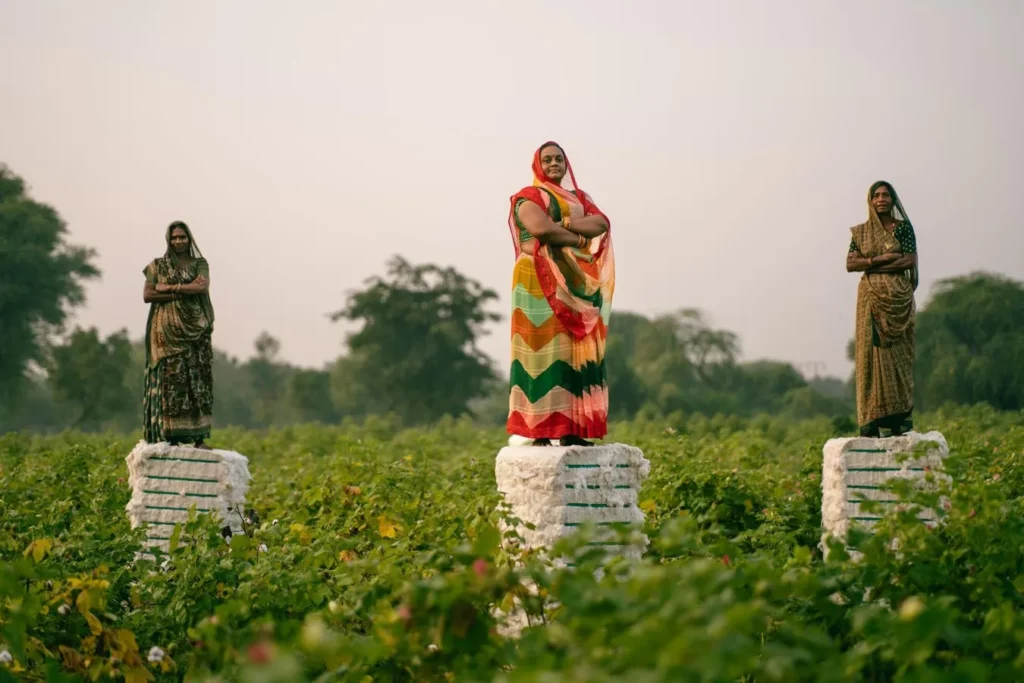
Inside Fashion’s Regenerative Cotton, And Brands Paying Green Premiums
In the fashion industry, sustainability and eco-friendliness have become increasingly important concerns in recent years. One significant step in this direction is the growing adoption of regenerative cotton, a practice that not only benefits the environment but also farmers’ livelihoods.
Materra, a for-profit tech startup, has been at the forefront of promoting regenerative farming practices among its partner farmers across India. Their approach involves training local agronomists and scientists to deliver personalized regenerative training programs tailored to specific farm conditions and soil types.
The company’s proprietary mobile app, Co:farm, aggregates over 300 data points to optimize resource use and automatically sends messages through WhatsApp to farmers for real-time support. This holistic solution enables efficient water and chemical use reduction, as well as enhanced biodiversity and ecosystem health.
Materra has successfully scaled its regenerative cotton program, supporting over 4,000 farmers across India in a span of just four years. As a result, the company reported impressive aggregated impact reductions in greenhouse gas emissions per kg of lint, water usage, and increased profitability for farmers.
This approach not only benefits the environment but also provides better livelihoods for farmers, who receive premiums from brands that are committed to sourcing regenerative cotton. In 2024, Materra reported a substantial increase of 6.1% in cotton yield with a 14.1% reduction in farmer costs (increasing profitability by 26.1%). This shift towards sustainability is critical for the industry as synthetic pesticide use decreased by 21.4%, fertilizer use reduced by 17.5%, and carbon emissions per acre dropped by 23%.
As part of its direct sourcing strategy, Materra pays a “green premium” to farmers that exceeds the standard market rate. While this approach may seem costly, many brands are willing to pay the extra fee for their commitment to sustainable practices.
Brands like Mango and Ecoalf have already partnered with Materra to promote regenerative farming practices among Indian farmers. For instance, Carolina Blazquez, Head of Innovation and Sustainability at Ecoalf emphasized the importance of direct sourcing: “These farmers are the foundation of the fashion industry yet they’re often overlooked—supporting them is just as important as choosing better materials.”
In 2023, Materra reported a 21% reduction in greenhouse gas emissions per kg of cotton lint, a 7% reduction in water use, and a 12% increase in profitability.
Source: https://www.forbes.com/sites/brookerobertsislam/2025/04/10/inside-fashions-regenerative-cotton-and-brands-paying-green-premiums/


